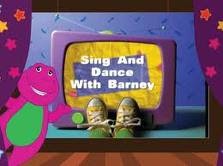Play is a early way for children to learn.Through play children can develop their ideas about the world . Dramatic play is one of the way for the children to develop their ideas. It help them to build some necessary skills. They also learn how to solve problem and feel good when they play also. This because children always full with imagination when they play. When the children is playing dramatic play they able to learn about them, friends, others, and the environment they living in. Other than that through play the children can form a relationship with friends and they playing in the dramatic play. The only way to the children to learn not only teacher-directed, like children sit and do their worksheet or use flash card to learn letters and numbers. It more than that.
Through dramatic play the children can develop their physical, cognitive, social and emotional development. The children can develop their physical development as they playing. It help them to increase their strength, overall fitness, and their motor skills. Other than that the children also develop
their cognitive development. When they playing they increase their skills such as problemsolving, creative thinking, planning, organizing and language. For example Kathy and Julieis having fruit store at dramatic playarea that the teacher have set for them. The teacheralso have label all the things and the fruits in the fruit store. When Kathy is as the salespeople and Julie as the customer. They learn new vocabulary when Julie ask for pamelon,kiwi and watermelon fruit at Kathy. Other than that also the children can developtheir social and emotional development. Like the children can develop their skillscooperation, taking turn, sharing, and they also can build their self esteem as they playing. For example Sally can share her grocery basket with Amanda when they playing having grocerystore that the teacher have set for them to play.
real life of playing a dramatic play. For example the children can have unuse cashier machine for store that they having. Other than that the children also can have some certain time to play at the dramatic play area. Futhermore, the props and the things that been using at the dramatic play area should be
emotional and social development. The material have been use should be developmentally appropriate for young children. The dramatic play area is giving the children a healthy development. Through dramatic play the children can learn how to live when they became adults later.
Malaysia school system should enchance dramatic play into their preschool system. Not only book reading, writing, or use flashcard to learn letters and numbers. The children should have some dramatic play area in their class so they can develop their leadership skills. Other than that play also influence in their physical, social, cognitive and emotional. I will create a dramatic play area for the children using real props. This because I want the children to experience the real life situation and it very important for early years. For example I will set a theme such as flower for a week and for the dramatic play I will set garden for the children at the outdoor using real props such as flower pots, some boxes, fake fertilizer and children
gardening tool for them to do their gardening and label it according to the name. So the children can act in the set that I have design for them. For example Julie can act as gardening and Alex can help her to put fertilizer to the plant and water it. From there they can know that flower need water and fertilizer to growth.
Beside that the parents can help their to contribute at the dramatic play. They can provide play thing for the children to play at the preschool. Other than that parents cacan provide simple thing for the children to play. Like give them to play with pots, boxes and let them to play with their imagination not by buy
them toys and let the toys does the tricks all. Other than that I will respond to the children play. If the group of children acting in the school bus I will ask them where is this the school bus is going. When the children
· Elkind, D. (1981) The Hurried Child: Growing up Too
Fast Too Soon.
Company.
Enhancing your dramatic-play area through the use of prop boxes. Young
Children, 48(5): 6-11.
birth through age 8.
the Education of Young Children
SCSJ-0005437(REBECCA CHANDRAN)


















